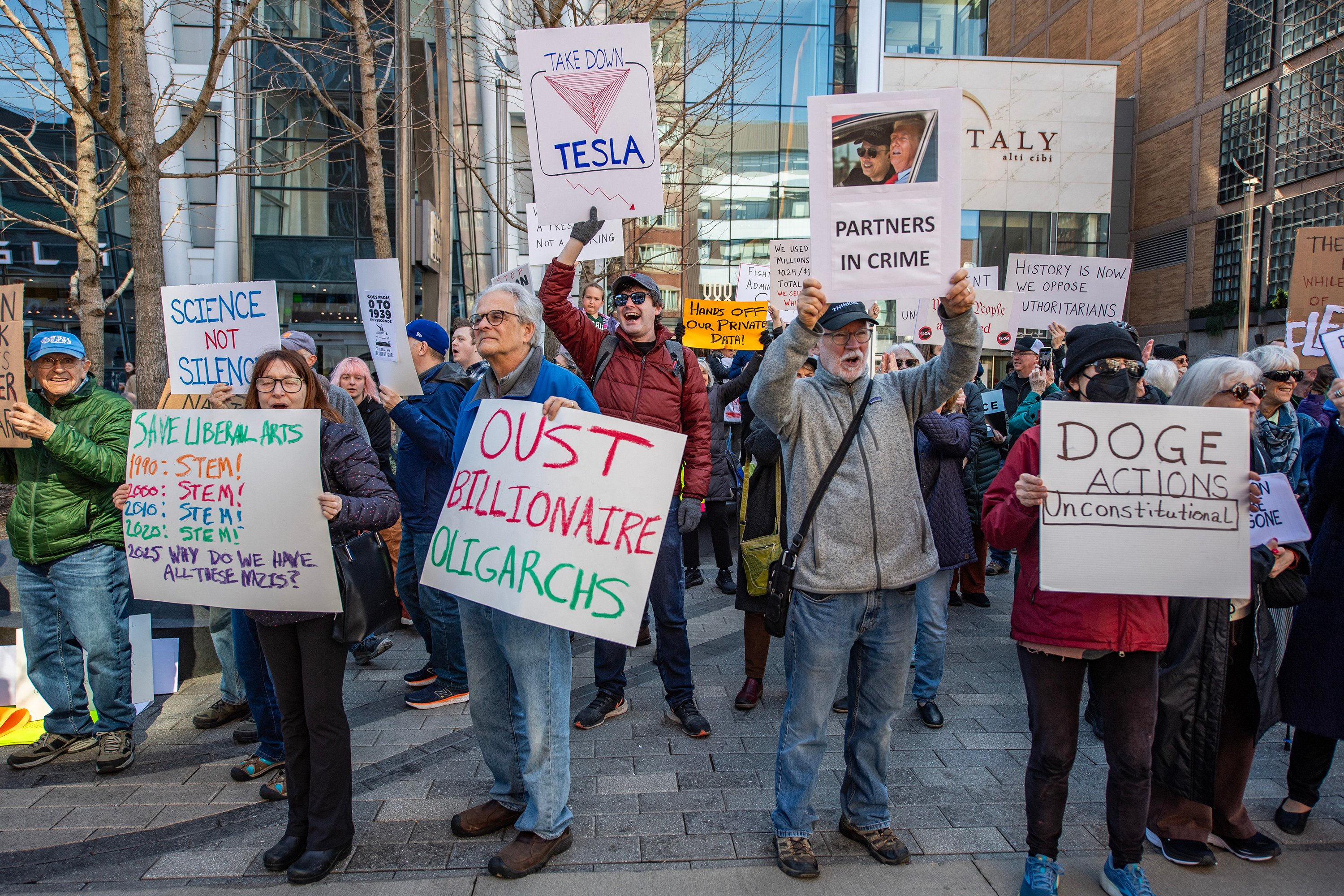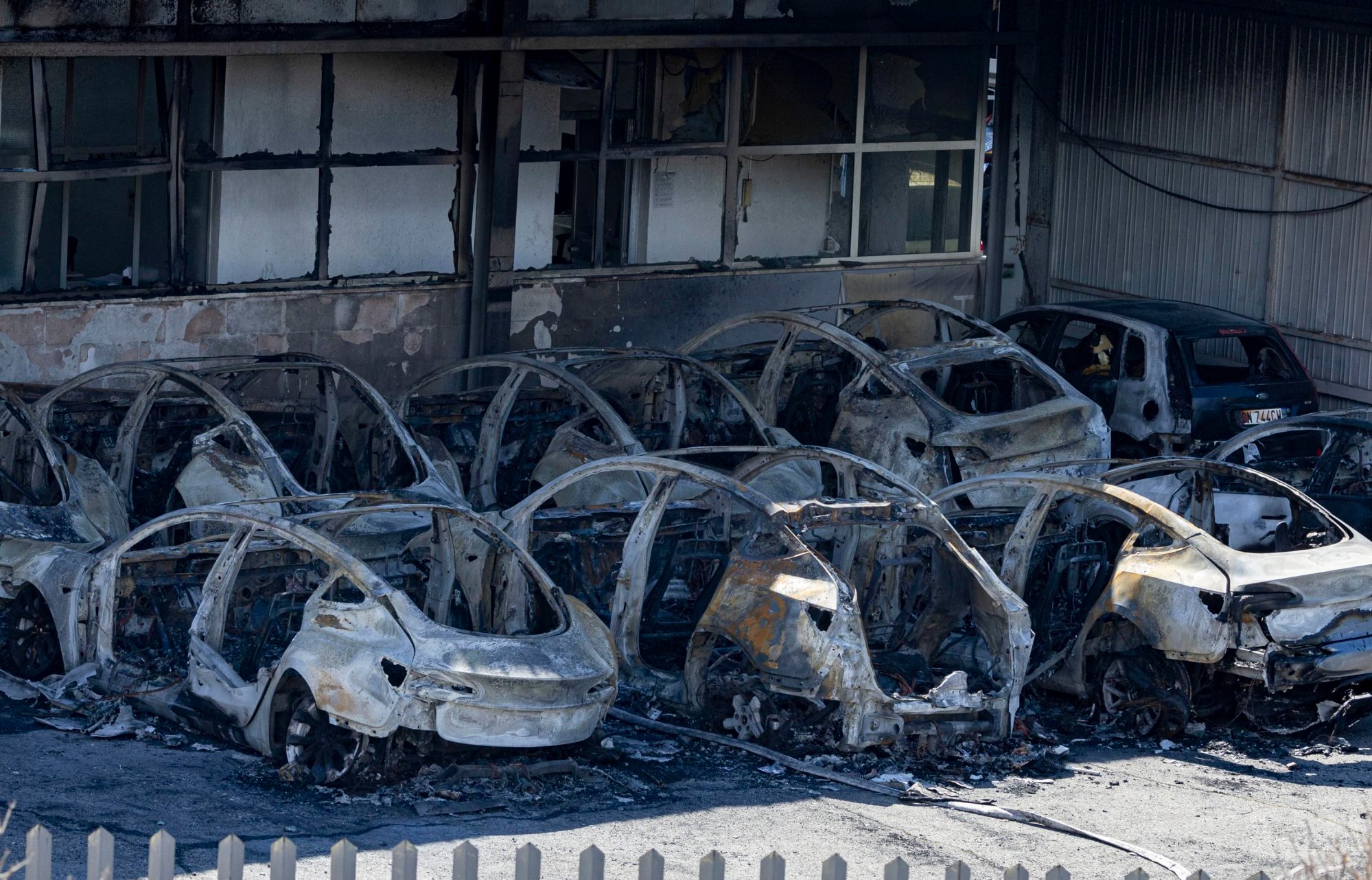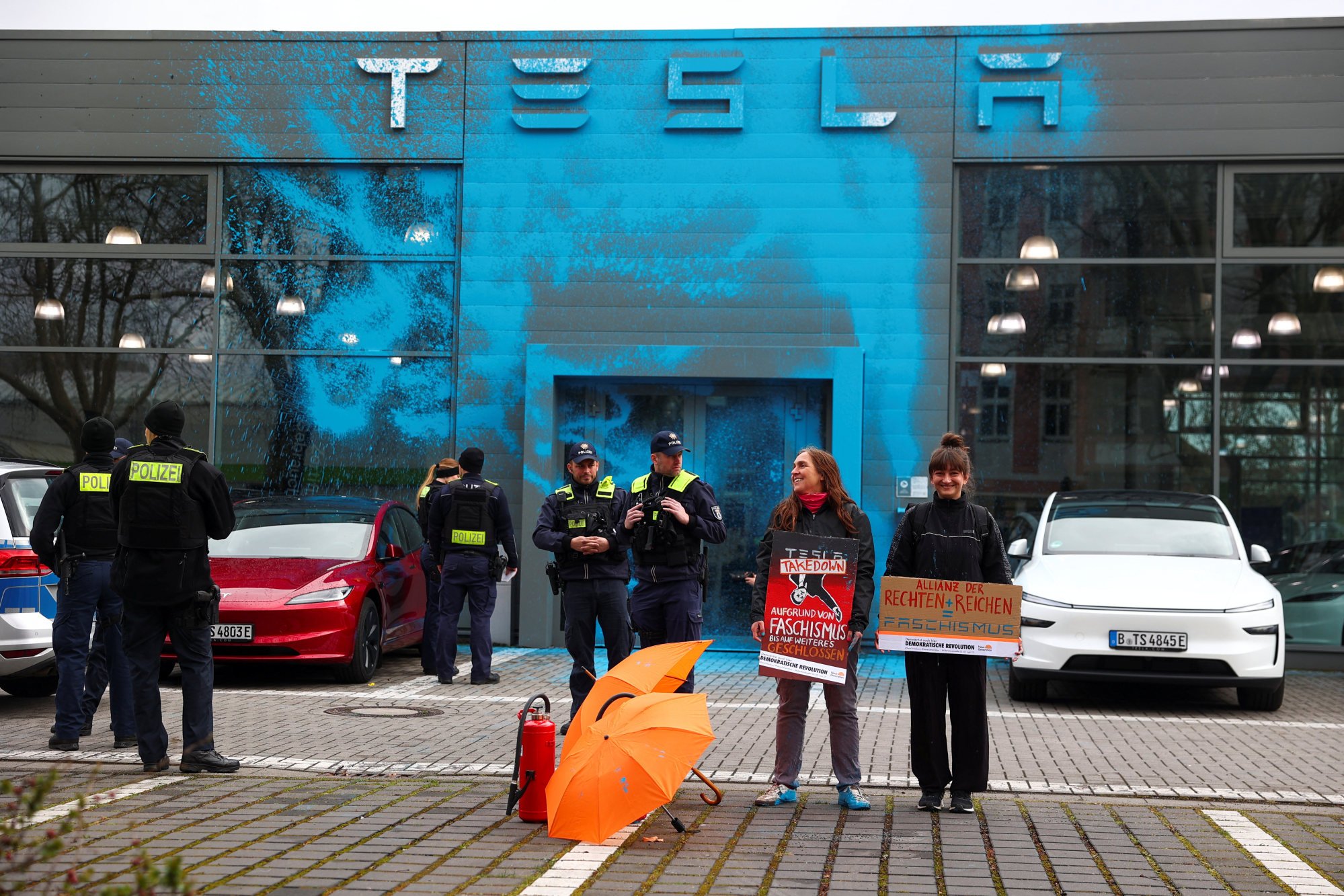Deja vu for Hong Kong as Tesla becomes lightning rod for public anger
Unresolved issues like poor governance, economic troubles and corporate power can lead to public frustration, resulting in violence and destruction

From Australia to Europe and the United States, Tesla has become a focal point of protests, with demonstrators accusing the company and its CEO, Elon Musk, of embodying divisive political and economic decisions.
The recent wave of vandalism targeting Tesla vehicles, showrooms and charging stations underscores a broader trend in which iconic businesses and institutions become lightning rods for public frustration and societal grievances.
This phenomenon is not unique. Hong Kong also faced protests and symbolic acts of destruction during the social unrest that ignited in 2019. In both cases, businesses or institutions seen as representing authority, systemic inequality or controversial political stances became targets of violent dissent.
In recent years, Tesla has become a symbol of wealth, corporate power and political influence, with Musk’s high profile and often polarising persona amplifying its visibility. His role in reshaping federal policies and overseeing mass lay-offs of government workers has positioned him as a divisive figure and, by extension, Tesla as a controversial entity.
Consequently, the company became a focal point for public anger and criticism regarding deeper systemic problems linked to economic inequality, corporate overreach and the consequences of disruptive leadership.
The targeting of Tesla facilities shows how unresolved issues like poor governance, economic troubles and corporate power can lead to public frustration, resulting in violence and destruction.

This pattern strongly echoes the social unrest in Hong Kong, where protesters targeted symbols of authority and influence, such as government buildings, public infrastructure and businesses with perceived or direct affiliations to mainland China. Although the contexts differ, both cases reveal how symbolic entities can become tangible representations of public frustration.
In Hong Kong, mainland-linked businesses, including supermarkets, hotels and franchise outlets like Pacific Coffee and McDonald’s were vandalised. The Bank of China saw its branches defaced with graffiti, windows smashed and ATMs destroyed. China Mobile outlets faced repeated attacks while Huawei Technologies stores were also vandalised, with windows shattered and equipment destroyed.
Starbucks and other outlets operated by Maxim’s Group became focal points of protest after Annie Wu Suk-ching, the daughter of the founder, spoke at the UN Human Rights Council in Geneva. She publicly denounced the protests, emphasising that “the views of a small group of radical protesters do not represent the views of all 7.5 million Hongkongers”.
She subsequently asserted that the city’s education system had failed to cultivate a sense of national identity or equip young people with a comprehensive understanding of Chinese history and heritage.
The parallels between Tesla’s situation and the Hong Kong protests are striking. In both instances, social media intensified polarisation and fuelled distrust towards business leaders. The destruction of property in these cases was not random but deeply symbolic, reflecting unresolved societal grievances.
These acts of vandalism underscore the polarising nature of modern society, where frustrations with systemic issues are expressed through symbolic, often violent, actions. Most people condemn these tactics as counterproductive and harmful, recognising they detract from legitimate concerns and alienate potential allies.
The economic toll is significant. In Hong Kong, destroying businesses and public infrastructure led to massive financial losses, prompting 40 countries to issue travel warnings, decimating our retail, catering and tourism sectors.
According to the Insurance Authority’s 2019 figures, gross and net claims related to the 2019 social unrest were HK$1.3 billion and HK$411 million respectively. The MTR Corporation alone reported over HK$600 million in damage.
In the US, Tesla faces similar financial challenges. The company’s stock has plummeted, and earnings per share dropped by 40 per cent in the first three months of the year, as Musk’s controversial political actions sparked protests and global boycotts of Tesla vehicles.

These incidents have resulted in him reducing his involvement with the Department for Government Efficiency (Doge) and refocusing on his business interests. The economic fallout highlights how political and societal tensions can have tangible consequences for businesses, shaking investor confidence and public trust.
Geopolitical tensions further complicate this landscape, as the lines between business and politics blur. In the US, investment banks supporting Chinese initial public offerings have come under pressure.
Recently, the chairman of the US House Select Committee on the Chinese Communist Party urged JPMorgan Chase and Bank of America to withdraw their involvement in the Hong Kong listing of Chinese battery manufacturer Contemporary Amperex Technology Limited (CATL). The move reflects an intensification of efforts to pressure Beijing.
As businesses become increasingly entwined in political and societal debate, they face many challenges, from managing public sentiment about diversity, equity and inclusion (DEI) policies to avoiding geopolitical conflicts.
The experiences of Hong Kong and Tesla illustrate how businesses and institutions can become the focal points of broader societal challenges. They illuminate the intricate interplay between business, politics and society, showing how these forces shape public discourse and challenge the resilience of institutions in navigating complex and polarised landscapes.